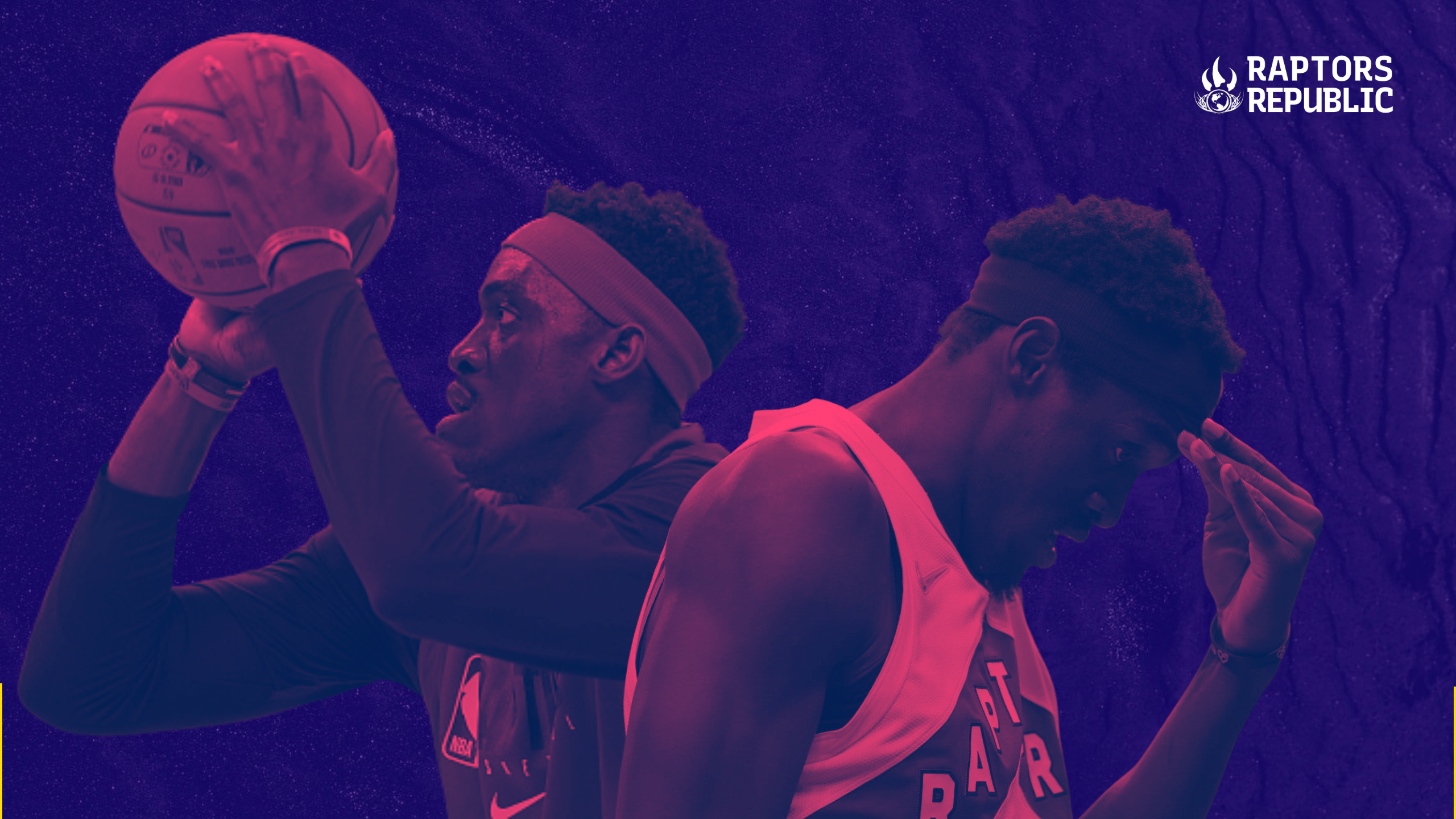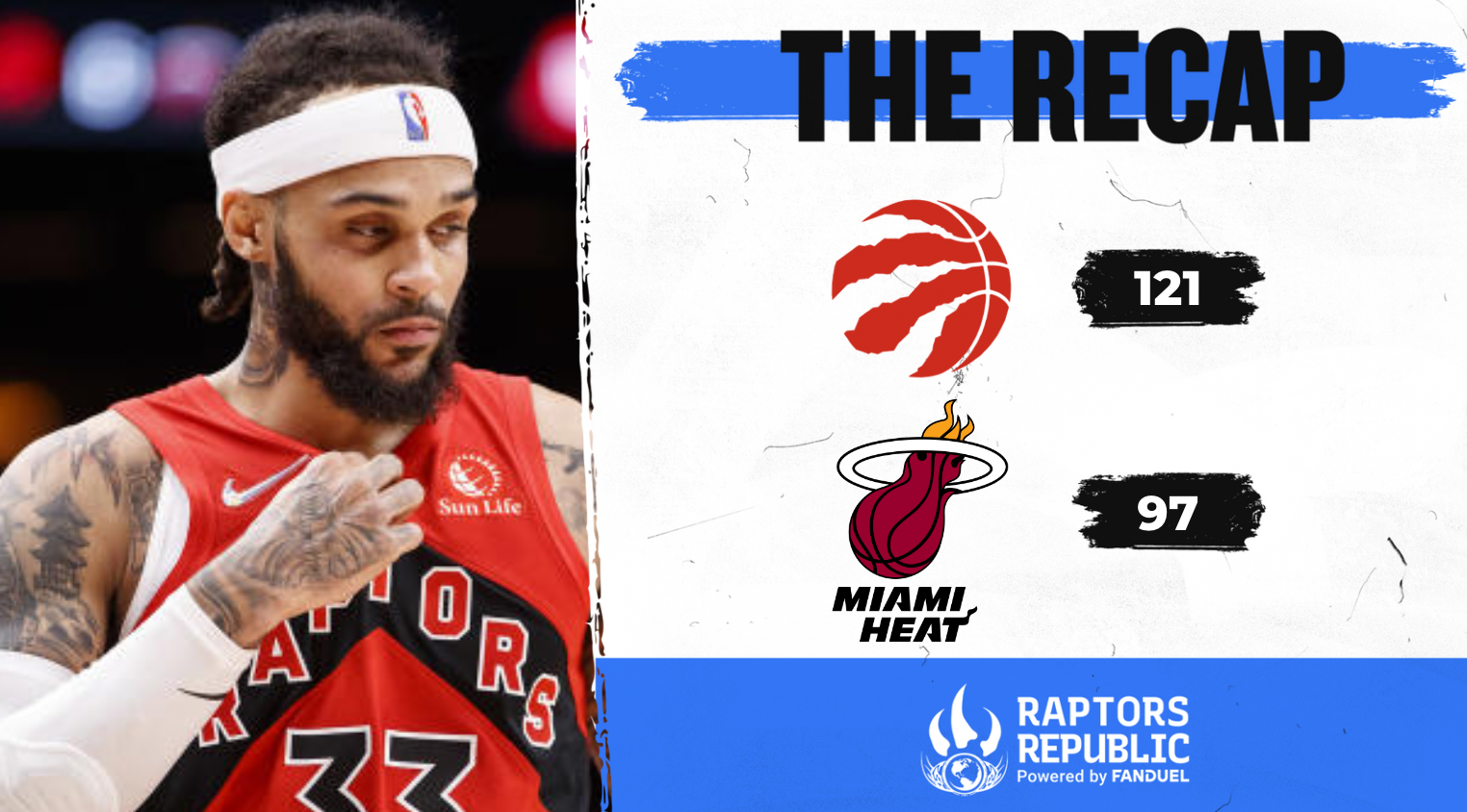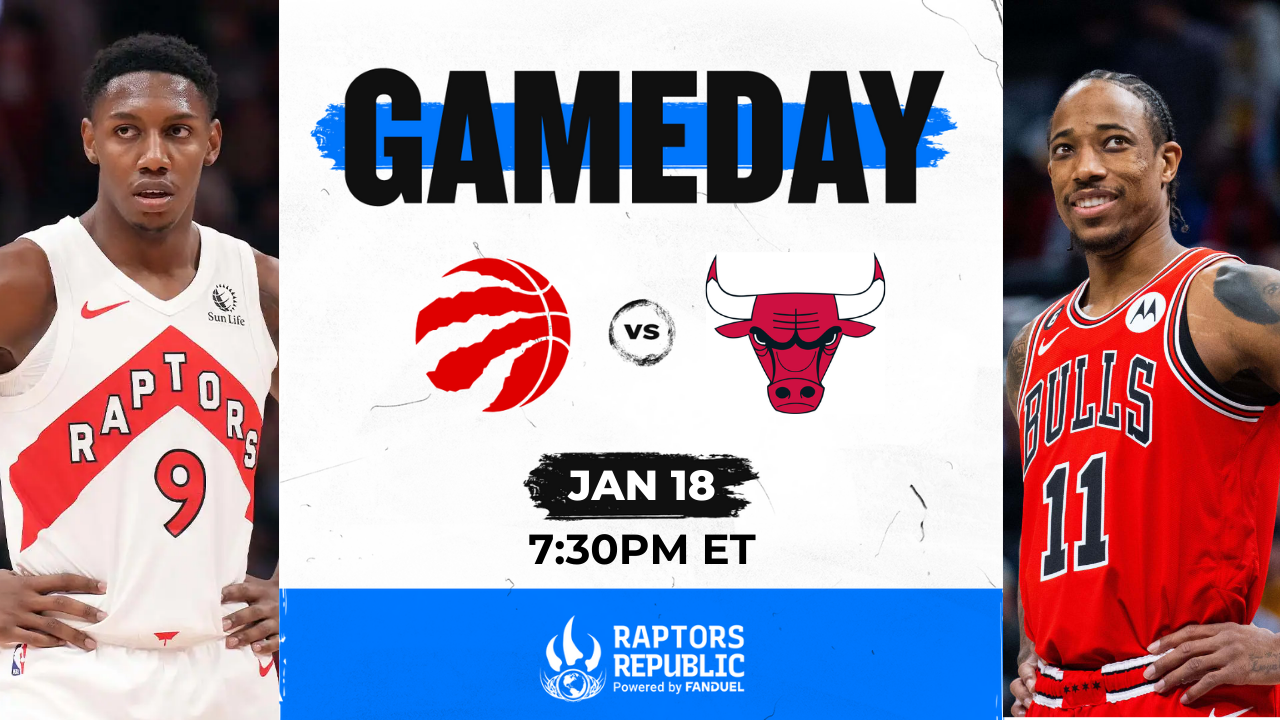Picture the rising moon. It’s not the same every night, not like the sun. Not the same shape over and over, though it will always return to its former forms before too long. It doesn’t shed enough light to reveal the world in all its flowering beauty, to grow the plants. But it still glows. It doesn’t have enough pull to organize an entire solar system around it. But it still draws the tide, the sea, the waves.
Pascal Siakam was the moon for the Toronto Raptors. He rose every other night, usually at 7:30 pm EST (7:39, more like), and drifted across the sky for two or three hours, bathing us all in the soft glow of his gorgeous game. But the moon is never the same shape two nights in a row. And Siakam could be depended upon for his growth, perhaps more than anything else. He changed from month to month, year to year, despite being a fixture the entire time.
He entered the league as an overmatched starter, taking two shots in his first game despite playing 20 minutes. He earned a reputation for running in transition, running like a blur — parting the seas like Moses because he couldn’t float over top. Eventually, he could cross the water any way he chose. But it happened slowly, so if you weren’t watching closely you might have missed it. Like the moon, he grew and grew and grew.
In his third year, he became a Hunter’s Moon, a Pink Moon. He started hitting corner 3s, finishing everything around the rim. He drove when defenses were too busy looking at Kyle Lowry and Kawhi Leonard. He defended forwards so that Leonard didn’t have to. He became a phenomenal rebounder. And the spin move. Oh, the spin move. He danced around the court, more lithe soccer player than mechanical post big, a smooth jazz omen from the future of fluid fire.
He won Most Improved Player of the Year. And then a championship. He closed out the Finals with a stepthrough against Draymond Green, one of the greatest defenders in history.
And then the team was his. He was a Wolf Moon, a Harvest Moon. He was a pull-up shooter, all of a sudden. The moon is rhythm, the Earth’s own bass line. He hit a game winner over the Phoenix Suns driving past everyone, always faster than anyone his size has a right to be. The moon is sea travel, pulled by waves, space travel by slingshot, gravity assist twirling around the moon for a lunar boost. Siakam was an All Star. He was an MVP candidate for a brief moment. He was the reason why the Raptors, losing their All-World megastar for nothing, remained the best team in the league, or close to it.
Until they weren’t.
The world ended, and we all started washing our fruit with Lysol wipes. And Siakam didn’t practice basketball the whole time, and he played terrible offensive basketball during the Bubble. Blue Moon. The Raptors lost in seven to the dreaded Boston Celtics, as Kyle Lowry and OG Anunoby dragged Toronto to their three wins. The vitriol was immense and acidic. Even the next season, after he returned to playing well, Siakam was always on trial, for every missed shot or slow rotation. He was considered so bad — despite bouncing back to his stellar ways a few games into the next season — for so long that he required a legal defense podcast.
Moons don’t stay full forever. They keep rising every night, but they don’t take up half the sky, emboldened in orange fury. They shrink and quail into crescents. But then, of course, they grow.
Siakam became the full moon again. Flower Moon, Storm Moon. He started enjoying basketball again. Everything came full circle. The spin move only became deadlier, more evolved, faster. His post game, a strength since his sophomore season, hardened and crystalized and sharpened until it was razor wire around a defense’s throat, a death computer. He was a star. A star. A celestial body that no one expected, that no one discovered until it was too late. He was the greatest developmental story in franchise history. He soared into the franchise history books. He was back and better than ever, despite it all. He took Toronto back to the playoffs in 2022 and did everything better than he did in the championship season. The fans loved him again. But it seems like management never did.
The solar system in which he existed was never designed for him. He may have been a moon, but — like the moon — we only ever saw one side of his possibilities. He never played with shooters, never had more than a thimble of space in which to convert his post miracles. The team was never designed to suit Siakam’s strengths. He spent the last few years growing into the strange vessel provided for him, a flower bursting through concrete.
Which brings the moon back in orbit to this season. To now. Toronto’s front office has been privately shopping Siakam for years, but it became public as the season began. Masai Ujiri strangely said his only All-NBA player needed to “prove” himself on media day. We curse the moon, sometimes. The Raptors were done with Siakam, almost traded him to the Sacramento Kings — only to have him suit up and play against them that night after the deal fell apart, scoring 18 points on 11 shots. Try as you might, the moon cannot be knocked from the sky. It will persist and revolve, and — in Siakam’s case — that revolution will be televised.
And even as Darko Rajakovic entered the season with absolutely no plan for how to use Siakam, and his usage in the offense shrank to standing in the corner and cutting off pindowns, Siakam remained a great player. His numbers didn’t budge — although he did become one of the more efficient 20-point scorers in the league. He continued growing, adding to his game.
Then he was finally traded. For good prospects, sure, but not for stars. Not for players who are even likely to be on the roster in a year or two. And Siakam was traded with Lowry and DeMar DeRozan back in Toronto, and of course he was because ritual and symbolism always circles and caves in on itself. The moon will keep rising, no matter what else happens. It will drift across the sky as we sleep. Everything comes full circle over a long enough time period. Siakam will remain the moon, but now in Indiana he’s in a solar system designed for his orbit. For the first time in years.
The moon is not like the sun. It cannot stimulate the growth of life, of consciousness. But it can stimulate the growth of love. It can be romantic and nostalgic and heroic. For all his skills, Siakam never became the sun. He was never the best player in the league, capable of hauling a team to the championship all by his lonesome. But he was the moon. His was a story worth cheering for, worth loving. He created a career from nothing. Some players excavate a career like archaeologists, finding it fully built and waiting beneath the surface. Siakam was an alchemist, summoning it from the ether, no father to his style. The moon once came from the Earth, split off and was jagged, and slowly became a sphere through the ravages of time and space and most of all, its own gravity. Its own fate.
Picture the rising moon. It is mysterious, but we know it like we know ourselves. It changes, but more than anything, it is reliable. It will always rise overhead the next night, no matter its shape. Until now. Now it will rise in Indiana. We’ll find out how high. And we will miss him in Toronto.



